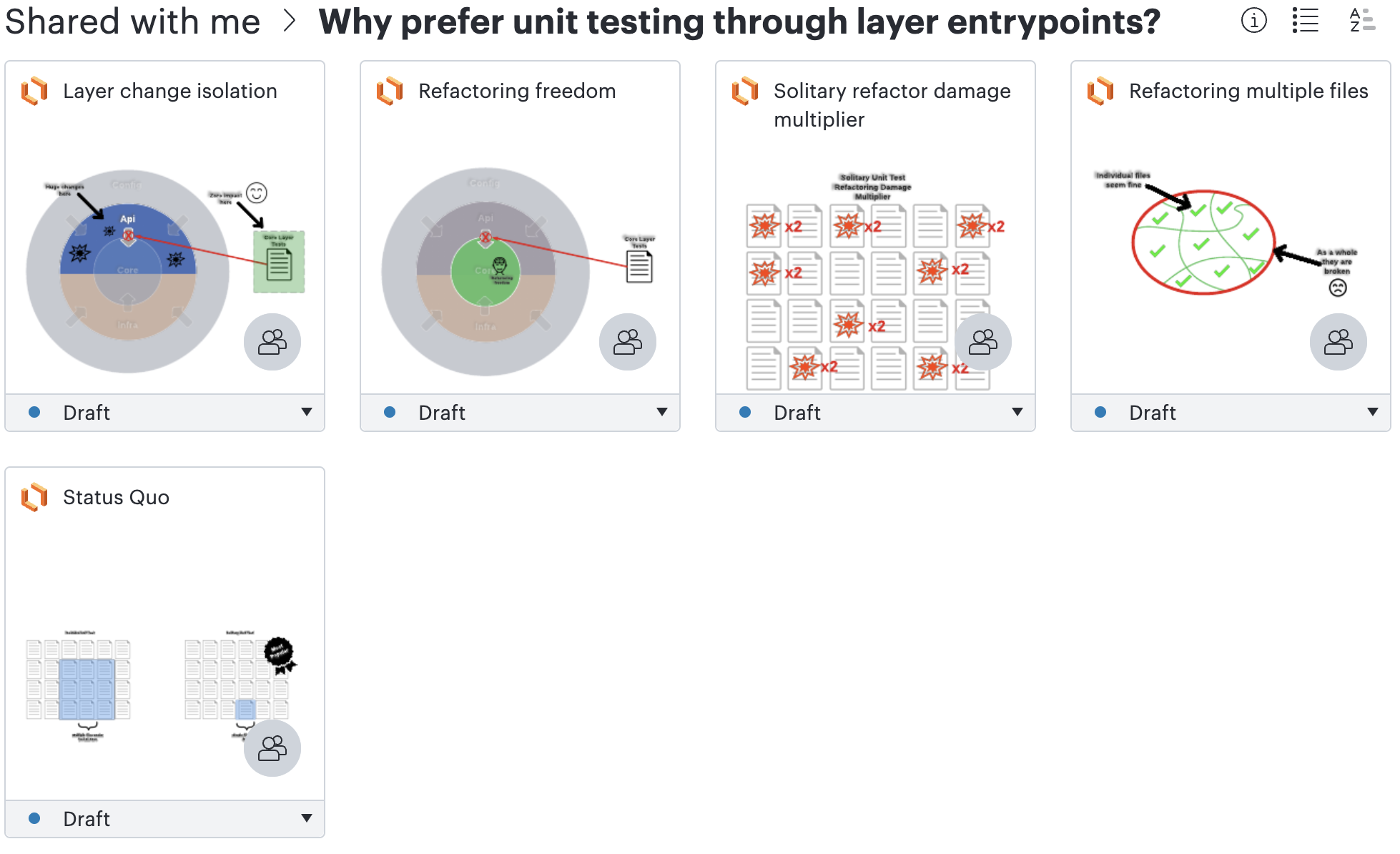Why prefer unit testing through layer entrypoints?
Status Quo
There is significant artistic variance on how to craft tests which provide developers quick and useful feedback. A common point of contention is the number of files which should be included within these quick and useful tests. The most popular strategy is to have a single file under test at a time.
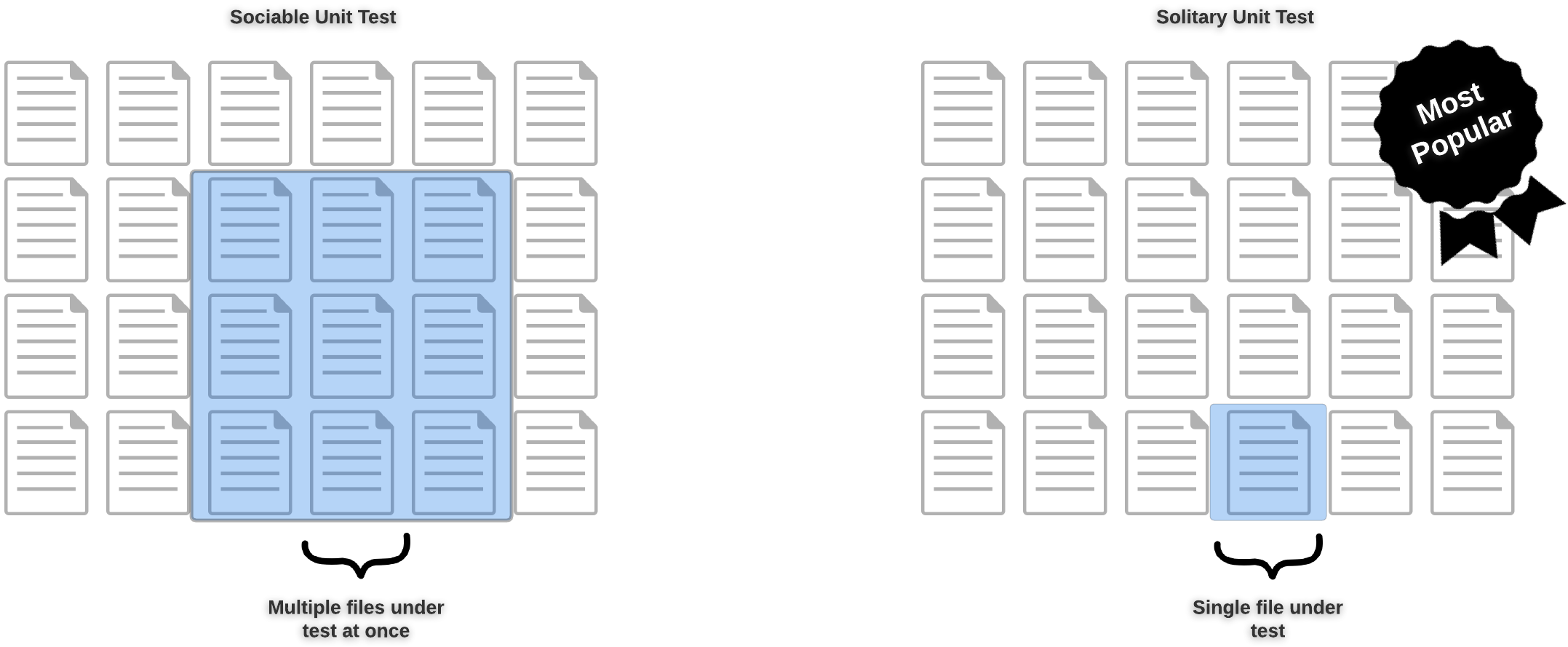
The solitary unit testing strategy is popular for a reason. They are guaranteed to run fast and are typically simple to author.
Motivation
Solitary unit tests while popular, have a few drawbacks. First and foremost it hinders our ability to confidently refactor across multiple files. An individual file working correctly doesn’t imply it works well with its neighbors.
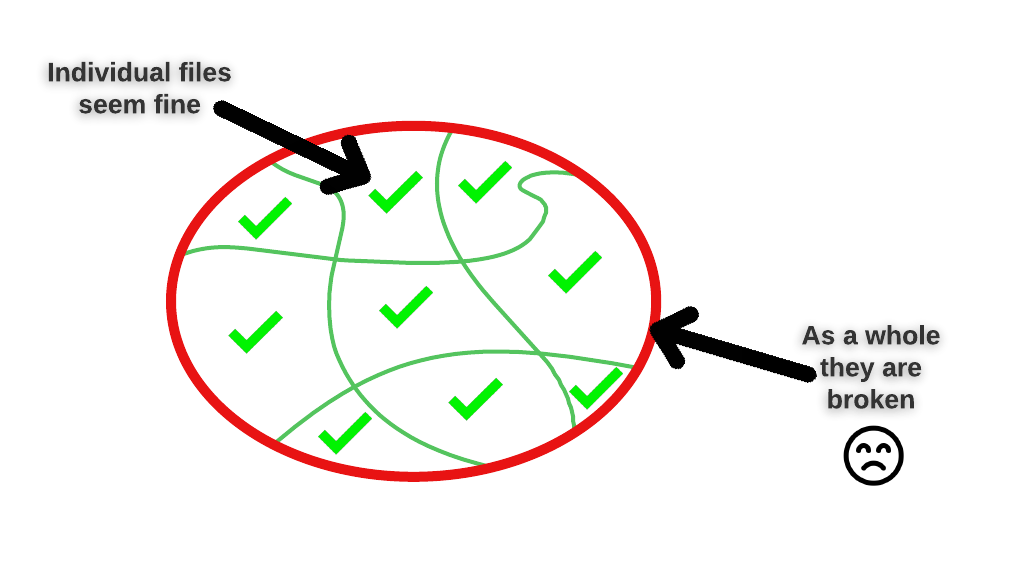
A second drawback to solitary unit tests is the need to update tests when refactoring. This effectively doubles the amount of code change during a refactor even when the observable behavior of the system hasn’t changed.
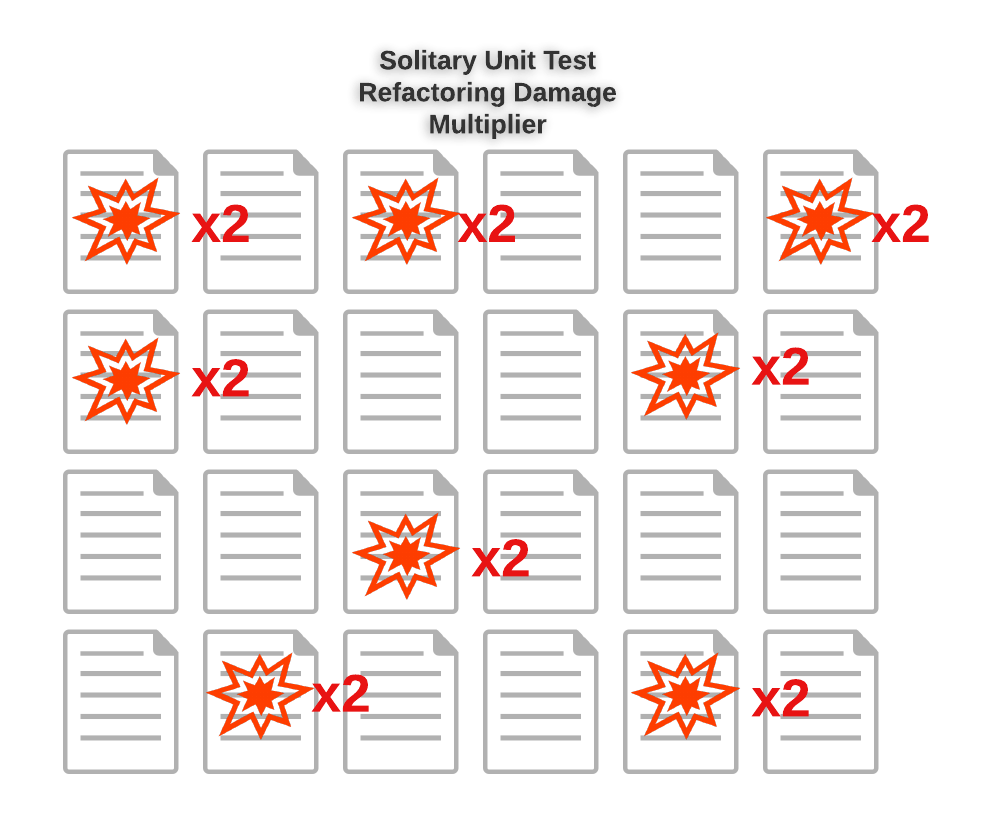
This lack of confidence and double-work of refactoring is discouraging to those who seek to improve and refine the structure of the code base.
Solution
Proposed solve to unlock refactoring freedom is to prioritize sociable unit tests which focus on layer interfaces. In doing so we get higher confidence when refactoring with zero test change overhead.
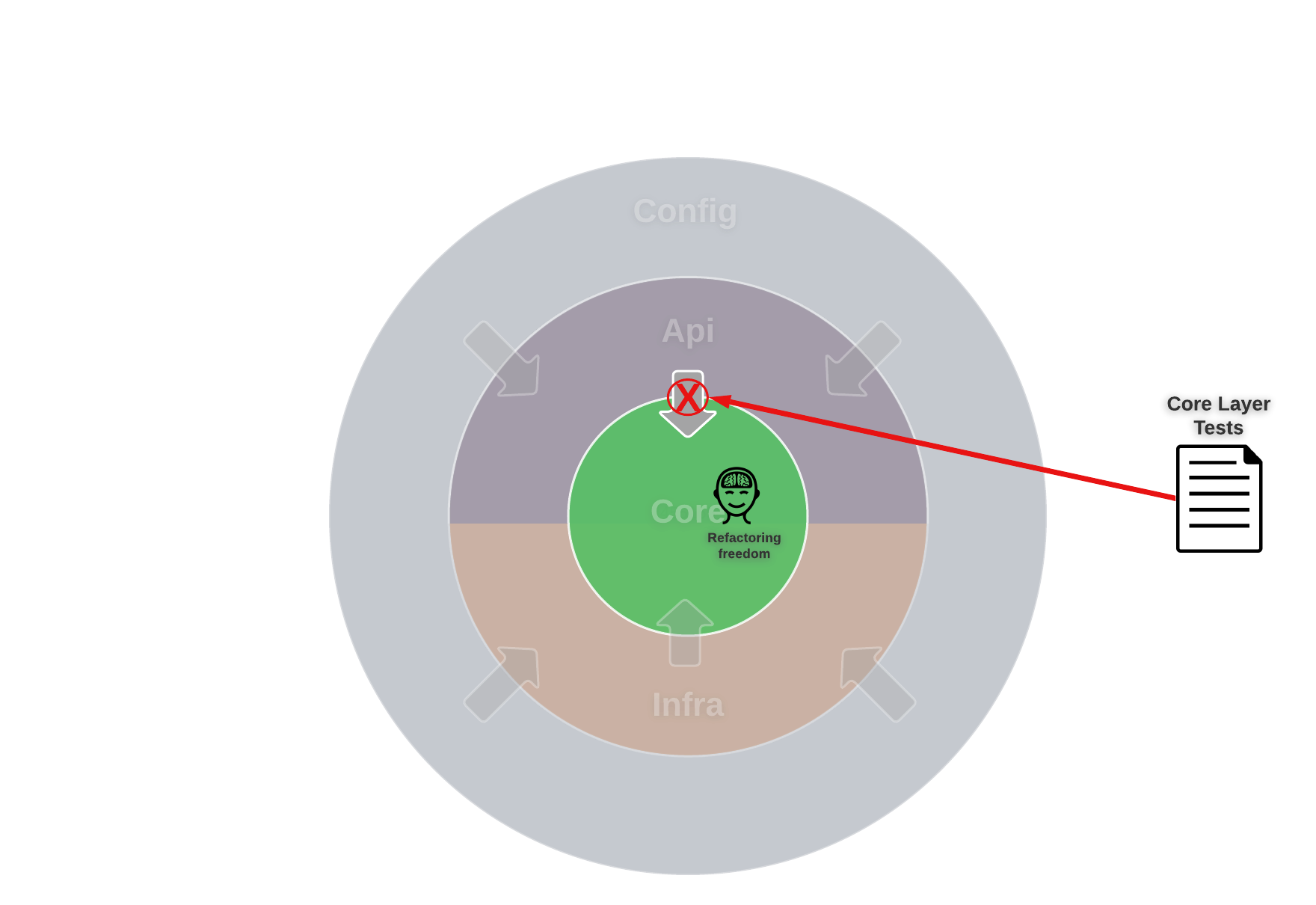
These tests will also get to piggy-back on layer isolation making them more stable and isolated from changes in other parts of the code base.
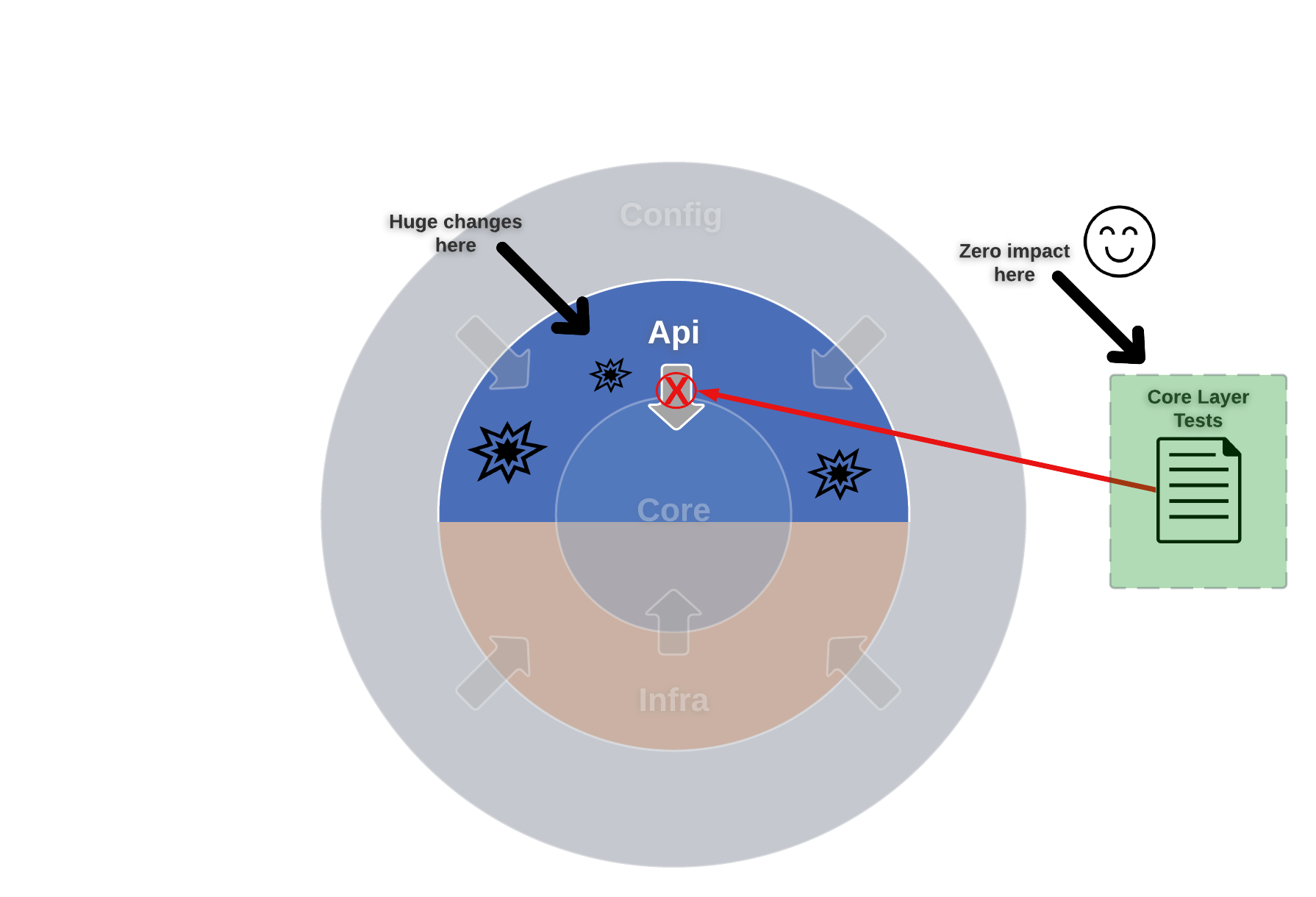
Risks and mitigations
The proposal to prefer unit testing through a layer entry point does not come without its own fair share of drawbacks. These are acknowledged with mitigations listed below.
| Risk | Mitigation |
|---|---|
| Unit test takes longer to run |
|
| Test setup becomes more complex |
|
| Difficult to test exhaustively |
|






